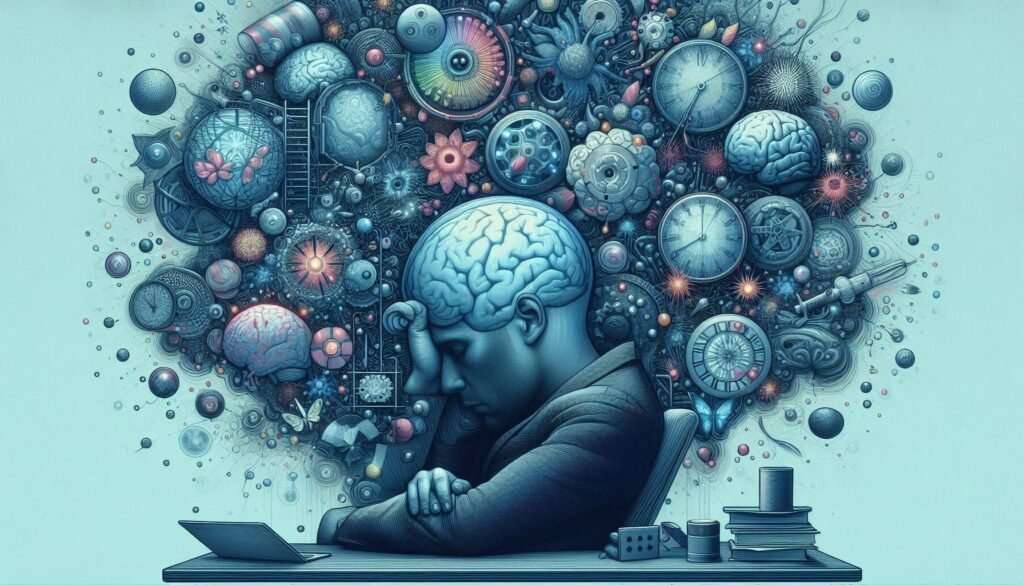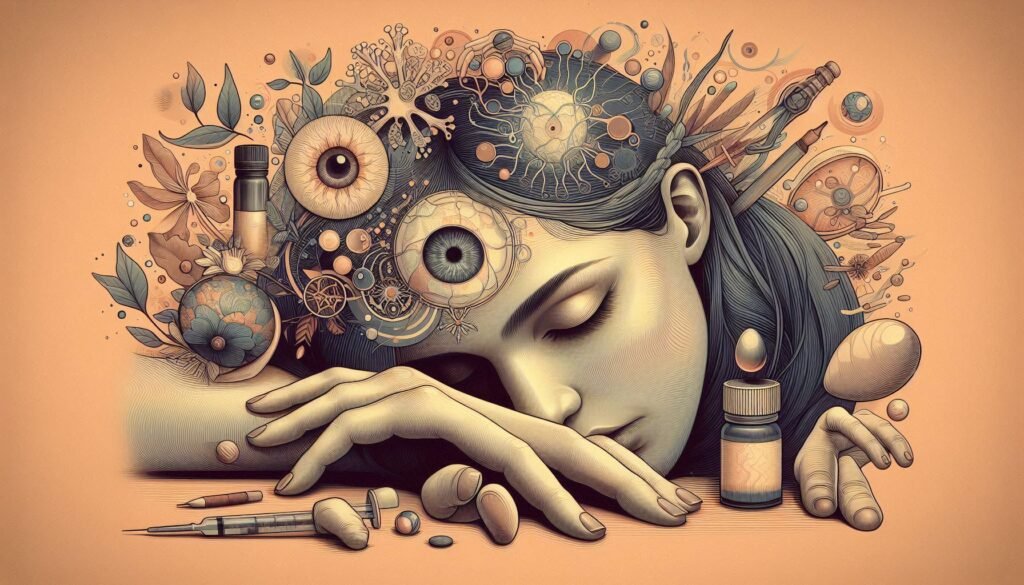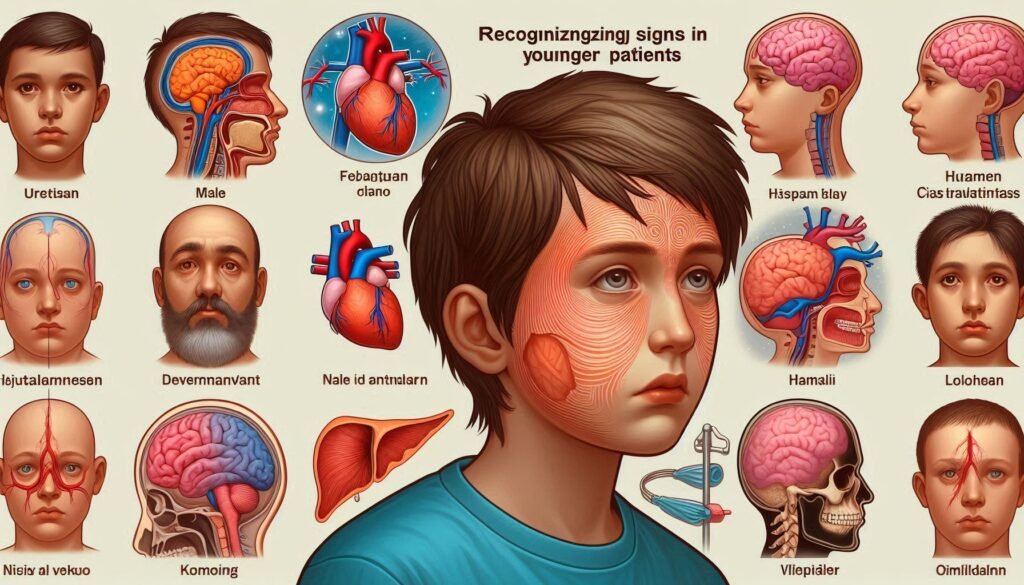Catatonia is a complex neuropsychiatric syndrome that often goes unnoticed, yet its effects can be profound. While many associate catatonia with physical symptoms like immobility or extreme agitation, the cognitive symptoms in catatonia deserve equal attention. These cognitive impairments can significantly impact an individual’s thinking, memory, and overall ability to function in daily life.
Understanding these nuances not only helps in better diagnosis but also paves the way for effective treatment strategies. This blog delves deep into the various aspects of cognitive functioning affected by catatonic states—from attention deficits to language processing abnormalities—offering insights both for caregivers and mental health professionals alike. Join us as we explore how catatonia affects cognition and what it means for those living with this challenging condition.

Overview of Cognitive Functioning in Catatonia
Cognitive functioning in catatonia encompasses a range of mental processes including attention, memory, and problem-solving. While the classic symptoms may draw immediate focus, the cognitive aspects can significantly influence an individual’s overall well-being.
Catatonia often leads to a marked decline in various cognitive abilities. This impairment can vary from mild difficulties in concentration to severe disruptions that hinder everyday tasks. Understanding these changes is crucial for effective management.
Research indicates that cognitive symptoms are not merely secondary effects but integral components of the syndrome itself. These impairments can persist even after physical symptoms have improved or resolved.
The interplay between cognitive deficits and emotional disturbances complicates recovery efforts further. Addressing these issues requires comprehensive assessments tailored to each patient’s unique experience with catatonia, emphasizing both mental health support and targeted interventions to aid recovery.
Attention and Concentration Deficits in Catatonic States
Attention and concentration are critical components of cognitive functioning. However, individuals experiencing catatonia often face significant deficits in these areas. These challenges can manifest as an inability to focus on tasks or difficulties engaging with their environment.
Patients in catatonic states may exhibit a marked reduction in alertness. This diminished responsiveness makes it hard for them to process information effectively. They might struggle to maintain attention during conversations or while reading, leading to misunderstandings and frustration.
Moreover, the lack of concentration can extend beyond immediate tasks. Daily activities that require sustained mental effort become overwhelming challenges for those affected by catatonia. As a result, even simple decisions might feel insurmountable.
These attention deficits not only impact cognitive performance but also affect interpersonal relationships. Friends and family members may find it challenging to connect with someone who is unable to engage fully due to attentional limitations.
Memory Impairments: Short-term and Long-term Effects
Memory impairments in catatonia can significantly impact an individual’s daily life. Patients often experience difficulties with both short-term and long-term memory functions. For example, they may struggle to recall recent events or conversations, leading to confusion and frustration.
Short-term memory issues manifest as challenges in holding onto information for brief periods. Simple tasks, like remembering a phone number or following instructions, can become daunting obstacles. This impairment complicates interactions with caregivers and loved ones.
Long-term memory is also affected but often in different ways. Individuals might find it hard to retrieve previously stored memories from childhood or significant life events. This gap can create feelings of disconnect from their pasts.
These cognitive symptoms contribute to the overall distress experienced by those with catatonia. Understanding these memory impairments is crucial for developing effective therapeutic approaches that address both emotional and cognitive needs during recovery.
Executive Function Disruptions in Catatonia
Executive function refers to a set of cognitive processes that enable individuals to plan, focus attention, remember instructions, and juggle multiple tasks successfully. In catatonia, these functions can become severely disrupted, impacting everyday life significantly. Patients may struggle with organizing thoughts or prioritizing tasks.
One major area affected is the ability to initiate actions. Individuals in catatonic states often exhibit psychomotor retardation, making it difficult for them to start even simple activities. This lack of drive can lead to frustration and feelings of helplessness.
Additionally, decision-making becomes impaired. Catatonic patients might find themselves unable to weigh options effectively or foresee consequences. This impairment can result in indecisiveness and difficulty adhering to routines.
Moreover, flexible thinking is compromised in catatonia. People may rigidly adhere to certain thoughts or behaviors without considering alternatives. Such disruptions not only affect mental functioning but also strain relationships and hinder recovery efforts.
Language Processing Abnormalities in Catatonic Patients
Language processing abnormalities are prevalent in catatonic patients, affecting their ability to communicate effectively. These individuals may exhibit a range of symptoms, from echolalia—repeating others’ words—to complete mutism. Such variations can significantly impair social interactions and daily functioning.
Difficulties with language comprehension often accompany these abnormalities. Patients might struggle to understand spoken or written instructions, leading to frustration and isolation. This gap in communication skills can exacerbate feelings of helplessness.
Moreover, those with catatonia may experience disruptions in the fluency of speech production. Their responses could be disjointed or tangential, making it hard for listeners to follow conversations. This is not merely a lack of desire to speak; it reflects deeper cognitive dysfunctions inherent in the condition.
The impact on self-expression can be profound. Many catatonic patients find themselves trapped within their own thoughts without a means to articulate them clearly, deepening their challenges both emotionally and socially.
Perceptual Alterations and Reality Testing in Catatonia
Perceptual alterations are a common experience for individuals in catatonic states. These alterations can manifest as distortions in visual, auditory, or tactile perception. Patients may see objects differently, hear sounds that aren’t present, or feel sensations on their skin without any external stimulus.
These shifts in perception often complicate reality testing. Reality testing refers to the ability to distinguish between what is internally generated and what exists externally. In catatonia, this ability can be severely compromised. As a result, patients might struggle to interpret their surroundings accurately.
Such perceptual disturbances can lead to confusion and disorientation. Individuals may find it hard to engage with others or respond appropriately during social interactions. This disconnect from reality further exacerbates cognitive symptoms associated with catatonia.
Therapeutic interventions aim to address these perceptual issues by providing supportive environments where safe exploration of perceptions occurs. Understanding these experiences is crucial for effective treatment and support strategies tailored for those affected by catatonia.
The Impact of Catatonia on Decision-Making Abilities
Catatonia significantly affects decision-making abilities, often leading to impaired judgment and increased indecisiveness. Individuals in a catatonic state may struggle to evaluate options effectively due to cognitive disruptions. This can result from attentional deficits or difficulty processing information.
Moreover, the emotional detachment associated with catatonia further complicates decision-making. When individuals cannot engage emotionally with their choices, it becomes harder for them to weigh outcomes appropriately. Emotional responses play a crucial role in making reasoned decisions; without them, the process feels overwhelming.
In addition, executive function impairments contribute to poor planning and problem-solving skills. These deficits can hinder one’s ability to foresee consequences and make informed choices in everyday situations.
Social interactions may be negatively impacted as well. Difficulty communicating or understanding others’ perspectives can lead to misunderstandings during collaborative decision-making processes. The overall effect is a significant decline in effective functioning within personal and professional contexts.
Assessing Cognitive Symptoms in Catatonic Patients
Assessing cognitive symptoms in catatonic patients is crucial for effective treatment. Clinicians typically employ a combination of clinical interviews, standardized tests, and observational assessments. These tools help identify specific cognitive deficits that may accompany the motor symptoms of catatonia.
A thorough evaluation often includes assessing attention span and concentration levels. Professionals observe how well patients can focus on tasks or engage in conversations. This step provides insight into their cognitive functioning during episodes of catatonia.
Memory assessment is also vital. Short-term memory tests gauge immediate recall abilities, while long-term memory evaluations explore how past experiences are retained and retrieved over time. Understanding these aspects helps tailor interventions to individual needs.
Evaluating executive function skills like problem-solving and planning is essential. Simple tasks can reveal significant disruptions in a patient’s ability to organize thoughts or make decisions effectively. Comprehensive assessments allow healthcare providers to create personalized recovery plans focused on cognitive rehabilitation strategies.
Cognitive Rehabilitation Strategies for Catatonia Recovery
Cognitive rehabilitation strategies are essential for individuals recovering from catatonia. These approaches aim to restore cognitive functions that may have been impaired during the episode. Tailored interventions can help address specific deficits, enhancing overall mental clarity.
One effective strategy is cognitive training, which focuses on improving attention and memory through structured exercises. Activities such as puzzles or memory games stimulate brain activity and encourage recovery of lost skills. Providing a supportive environment further fosters engagement in these tasks.
Another critical aspect is psychoeducation. Educating patients about their condition helps them understand their symptoms better and reduces anxiety associated with cognitive difficulties. This knowledge empowers them to actively participate in their rehabilitation process.
Incorporating mindfulness techniques can also be beneficial. Mindfulness practices promote self-awareness and improve focus while reducing stress levels, creating a conducive atmosphere for cognitive healing. Regular practice can lead to measurable improvements over time, boosting confidence during recovery.
Long-term Cognitive Outcomes in Catatonia: What to Expect
Understanding the long-term cognitive outcomes in catatonia is crucial for patients, caregivers, and healthcare professionals alike. Research suggests that while many individuals may experience significant recovery of cognitive functions after treatment, some deficits can persist.
Patients often report lingering issues with attention and memory even after acute symptoms have resolved. These impairments can affect daily functioning and quality of life. Some studies indicate that around 20-40% of individuals may continue to face challenges related to executive function as well.
The variability in cognitive recovery highlights the importance of early intervention and tailored rehabilitation strategies. Ongoing assessments are essential for monitoring improvements or identifying areas needing further support.
Engaging in cognitive rehabilitation programs can enhance recovery chances significantly by targeting specific deficits through structured activities designed to improve thinking processes and memory recall.
With a supportive framework, most individuals with catatonia can expect gradual improvement over time. Understanding these potential outcomes helps set realistic expectations for patients and their families during the recovery journey from this complex condition.


